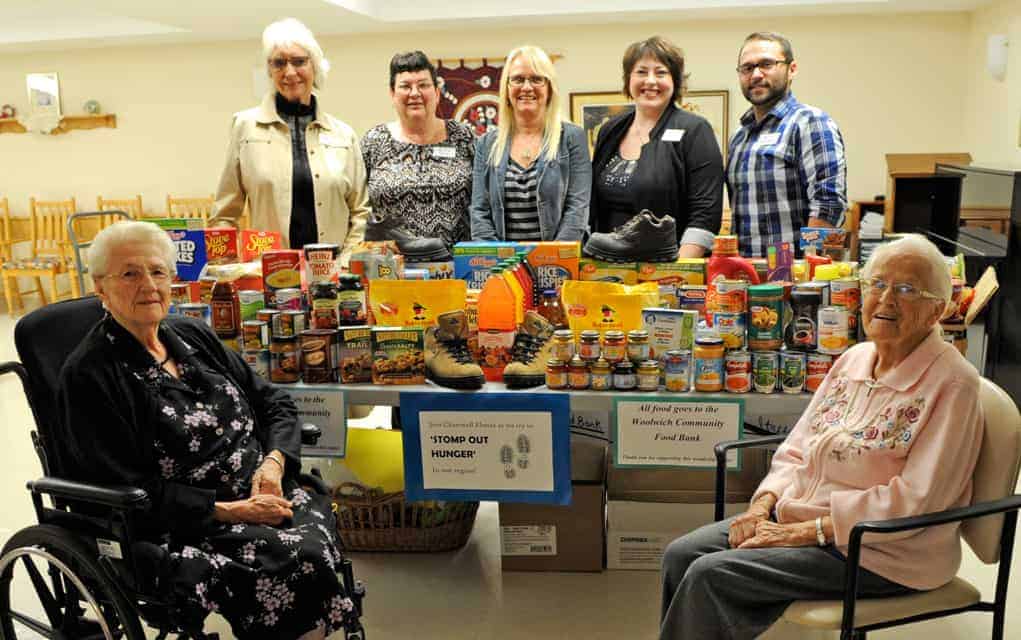Catch-22? Chicken-or-the-egg? Whatever the label, Frank Rattasid finds himself in limbo over his plans for the former Paleshi Motors site in Elmira – he won’t go ahead with a planning application for expanded uses until he gets some assurances staff will cooperate; planning staff won’t render an opinion until he files some formal paperwork.
Once home to a municipal dump, then operated for decades as a wrecking yard and used auto parts depot, the Arthur Street North site is now owned by 86 Auto and Metal Recyclers. Rattasid wants to expand the types of metal collected beyond motor vehicles.
Initially, Woolwich planning staff insisted Rattasid needed to apply for a full rezoning of the property, which would require environmental assessments and a host of other costly studies at a site that is bound to have more than a few surprises lurking underground, straddling part of the former dump that is now home to Bolender Park. Staff later decided Rattasid could apply to the township’s committee of adjustment for a minor variance.
While the latter route would be less involved and costly, Rattasid argues that without planning staff’s endorsement, his application would likely be turned down, leaving a costly legal appeal to the Ontario Municipal Board as his only option.
“We don’t know why staff is opposing our plans to open a much-needed recycling facility,” Rattasid told councillors in unveiling his plans. “Why does Woolwich Township have a restriction on this property? We don’t understand why we can’t recycle steel. There is no change of use or change of material.”
Rattasid purchased the property and the auto salvage business – most recently operated by Alex Auto Parts – planning to expand the metal recycling options. The site will need to process 50 tonnes of metal daily to be viable, he said. That translates into 50 cars being crushed each day. If other forms of metal are accepted there – residents could sell or drop-off unwanted metal items – then there would be less need to truck in cars for processing.
Township planners had been adamant the property’s current zoning allows for the processing of only salvaged vehicles – the M-1 classification has a site-specific exemption for cars dating back to 1987 – but approved other forms of steel salvage.
Rattasid maintains that Woolwich’s stances forces him to do all of metal collection, sorting and crushing out in the front parking lot.
Dan Kennaley, Woolwich’s director of engineering and planning, argues that Rattasid is free to put a bin for collecting scrap metal at the back of the property behind the 10-foot fence. That would defeat the purpose of allowing people to drop off scrap metal at their convenience, he admits.
A commercial operation whereby loads of scrap metal would pass over a scale and customers would be paid for what they brought in would be more problematic, said Kennaley. A bin out front would be an accessory use to the auto salvage business, whereas a larger process would not.
“It’s about the scale of the operation,” he said.
He insists Rattasid needs to put in a formal application for a zone change or minor variance before staff can provide input.
“It requires a Planning Act application of some sort. Until then … it remains hypothetical.”
In that regard, 86 Auto and Metal Recyclers is not being treated differently than any other business, Kennaley maintains.
But Rattasid and his son, Frank Rattasid Jr., who’ve been attending Woolwich council meetings regularly, beg to differ.
Planning staff has been defensive and not helpful, Rattasid Jr. has told councillors, adding he and his father have been treated “rudely.”
“Why is staff giving us such a hard time?” asked Rattasid. “We don’t understand why a new business in Woolwich is being stalled.”
Calling a zone change application too costly, he said the company won’t apply for a minor variance without staff support beforehand. Kennaley maintains the application must come first. Councillors can expect another visit.









